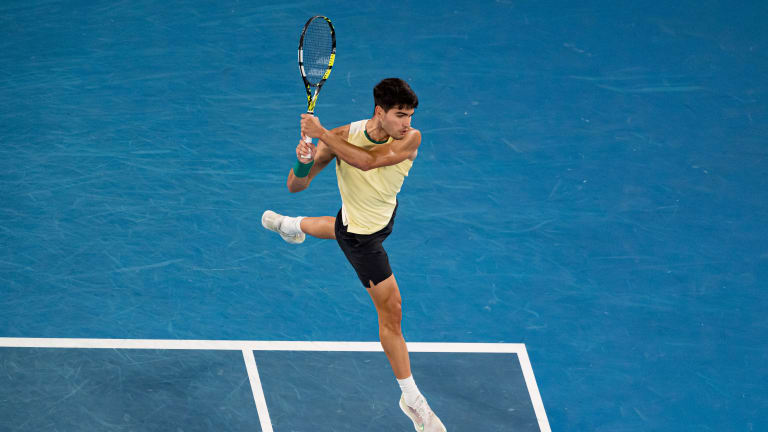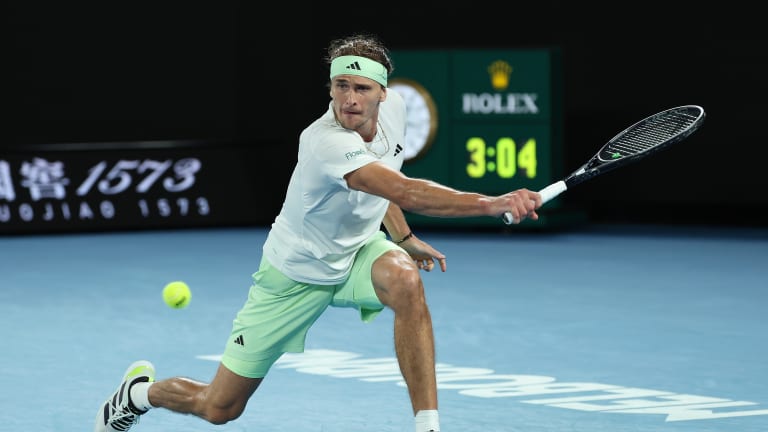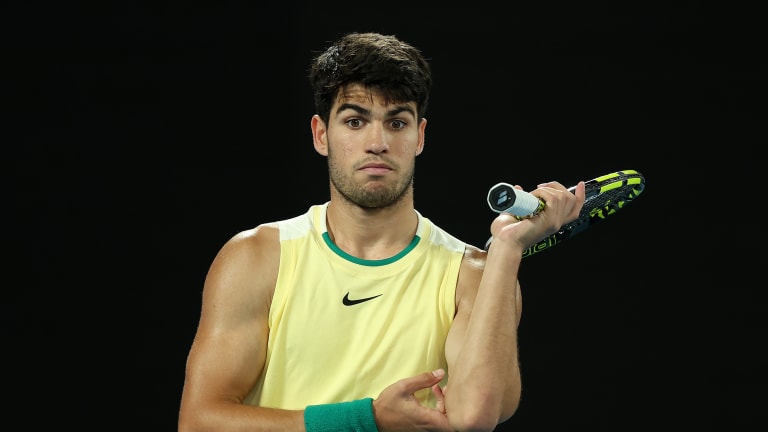Australian Open
Three shots that defined Carlos Alcaraz's defeat to Alexander Zverev
By Jan 24, 2024Australian Open
Australia at Last: Reflections on a first trip to the AO
By Jan 29, 2025Australian Open
Alexander Zverev must elevate his game when it most counts—and keep it there
By Jan 27, 2025Australian Open
Jannik Sinner draws Novak Djokovic comparisons from Alexander Zverev after Australian Open final
By Jan 26, 2025Australian Open
Alexander Zverev left to say "I'm just not good enough" as Jannik Sinner retains Australian Open title
By Jan 26, 2025Australian Open
Jannik Sinner is now 3-0 in Grand Slam finals after winning second Australian Open title
By Jan 26, 2025Australian Open
Taylor Townsend and Katerina Siniakova win second women's doubles major together at the Australian Open
By Jan 26, 2025Australian Open
Madison Keys wins her first Grand Slam title at Australian Open by caring a little bit less
By Jan 25, 2025Australian Open
Henry Patten, Harri Heliovaara shrug off contentious first set to win Australian Open doubles title
By Jan 25, 2025Australian Open
Aryna Sabalenka takes a rare loss in Australian Open slugfest
By Jan 25, 2025Australian Open
Three shots that defined Carlos Alcaraz's defeat to Alexander Zverev
The Spaniard, who hasn't won a title since Wimbledon, just can’t help himself.
Published Jan 24, 2024
Advertising

Alcaraz's two-hander let him down at a pivotal point in set two.
© © Andy Cheung / ArcK Images / Getty Images
Advertising

Zverev gave Alcaraz perhaps too much to think about with his all-around performance.
© Getty Images
Advertising

Carlos Alcaraz has not won a title since Wimbledon (eight tournaments played). Has only reached one final in that span, too.
© Getty Images